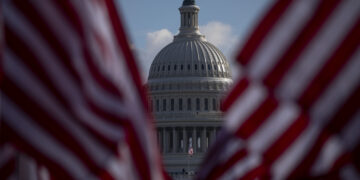October 8, 2024
Taiwan needs to start taking its defense seriously

It is no secret that China would like to get out of the first island chain into which it has been hemmed in for decades, or arguably even longer. They have long claimed much of the South China Sea, which includes territory claimed by multiple other states: coastlines, islands, strategically important reefs, and of course, Taiwan. There seems to be no dissuading China from attempting to grab as much of the South China Sea as possible—much like the United States, there is no way that a rising China will wish to be restricted to its backyard.
So that makes recent events all the more important. The Philippines’ coast guard has withdrawn from a disputed reef in the South China Sea after months of harassment from Chinese vessels. While the Philippines claims that they have not surrendered the reef, considering their coast guard has pulled out and repositioned their ships, this would seem to be simple face-saving. Similar events have occurred in the past, when China successfully claimed other disputed reefs. And more similar events will likely continue in the future: China is simply more powerful than any other South China Sea nation and is likely to be able to continue to bring more pressure to bear.
Which means it is only a matter of time until they turn their attention to the weakest link in the vaunted first island chain, a series of islands which act to pen China in: Taiwan. Taiwan, a democracy which China claims as its de jure own territory, seeks to keep that claim de jure and not de facto. Taiwan has also been a focus of those in the United States who are alarmed by China’s rise. Even anti-interventionists, such as former President Donald Trump, have paid close attention to Taiwan, with Trump even having a call with the then-Taiwanese president in 2016, shortly after winning the American presidency. Realists like Elbridge Colby, who will likely play a role in a hypothetical second Trump term, have visited Taiwan and spoken on the importance of ensuring the Chinese Communist Party does not gain a foothold there. And President Joe Biden, who ended the War in Afghanistan, repeatedly said that America would act militarily to defend Taiwan in the event of a Chinese attack.
There is just one problem: Taiwan’s defense spending, or more appropriately, their lack thereof. In early August, the Taiwanese government got positive headlines when they announced they planned to increase defense spending by six percent. But Taipei was already spending next to nothing to begin with. A six percent increase would bring Taiwan’s defense spending, as a percentage of GDP, to only about 2.5 percent. This is small potatoes, especially when the six percent increase is only in planned spending—as many countries often discuss big, planned increases which end up being significantly less than originally talked about.
More on Asia

By Jennifer Kavanagh and Dan Caldwell
July 9, 2025

Featuring Lyle Goldstein
June 27, 2025






